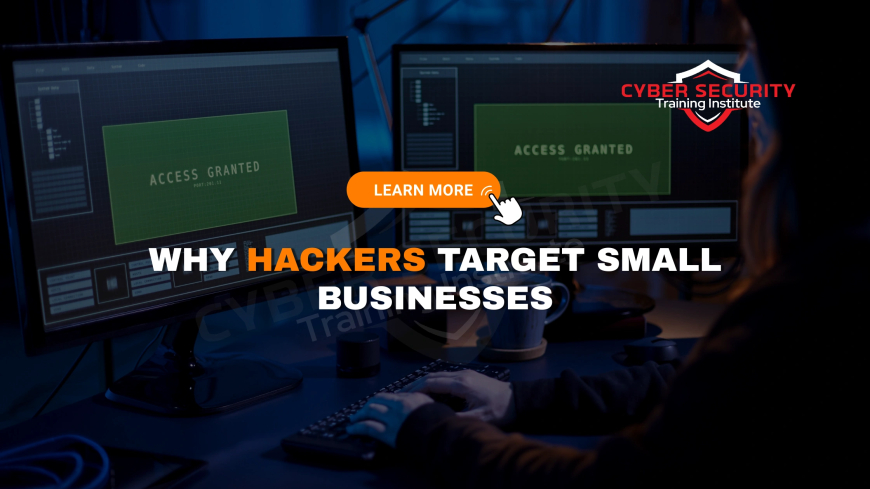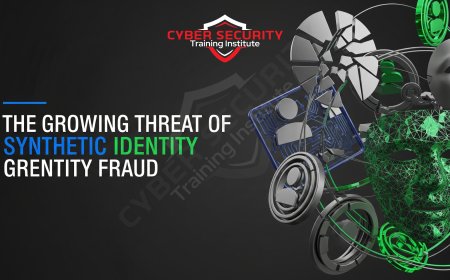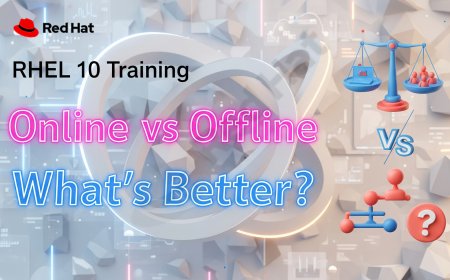Why Are Small Businesses Prime Targets for Cyber Attacks?
When you think of a cyberattack, you probably picture a massive corporation like a bank or a tech giant. You imagine sophisticated hackers breaching a fortress of firewalls, stealing millions of customer records. It's a common misconception that big businesses are the only ones worth targeting. In reality, the most common victims of cybercrime are not the Fortune 500 companies; they are the small businesses that make up the backbone of our economy—the local coffee shop, the family-owned construction company, the independent law firm. Data shows that a significant majority of all cyberattacks are aimed at small businesses, and a shocking number of these attacks are successful. This isn't because cybercriminals are benevolent; it's because small businesses are often seen as the low-hanging fruit—less secure, less prepared, and with valuable data that can be exploited. This blog post will demystify why small businesses are such attractive targets. We'll explore the common vulnerabilities that cybercriminals exploit, the types of attacks they use, and, most importantly, the actionable steps that small business owners can take to protect their livelihoods from this ever-present threat.

Table of Contents
- Introduction
- The Misconception and the Reality
- Why Small Businesses Are Ideal Targets
- Common Cyber Threats Facing Small Businesses
- How to Protect Your Small Business: A Practical Guide
- Conclusion
- Frequently Asked Questions (FAQs)
The Misconception and the Reality
The myth that "we're too small to be a target" is a dangerous one. Cybercriminals are driven by profit, and a successful attack on a small business can be incredibly lucrative for them, even if the individual ransom or theft is smaller than that of a major corporation. The sheer volume of small businesses makes them an attractive target. It's like a burglar choosing between a heavily guarded bank and a street with a hundred unlocked houses—they'll go for the easy targets. A study by the National Cyber Security Alliance found that a significant portion of small businesses do not have a formal cybersecurity plan, and many simply lack the resources to defend themselves effectively. This lack of preparation is a beacon for cybercriminals.
Why Small Businesses Are Ideal Targets
There are several key reasons why small businesses are so attractive to cybercriminals, each one creating a perfect storm of opportunity.
Limited Resources and Expertise
Unlike a large corporation with a dedicated IT department and a team of cybersecurity experts, a small business often operates on a tight budget. They may not have the funds to invest in expensive security software, hire a Chief Information Security Officer (CISO), or provide comprehensive employee training. The responsibility for IT security often falls to the owner or a single, overworked employee who may not have the specialized knowledge required to defend against sophisticated attacks. This resource gap is a major vulnerability.
Valuable Data and Connections
While a small business may not have millions of credit card numbers, it holds a trove of other valuable data. This includes:
- Customer Information: Names, addresses, email addresses, and payment information. This data can be sold on the dark web or used for future scams.
- Employee Data: Personal information, Social Security numbers, and banking details, all of which can be used for identity theft.
- Financial Information: Bank account numbers, transaction histories, and other financial records.
- Intellectual Property: Trade secrets, business plans, and proprietary information that could be valuable to a competitor.
Furthermore, small businesses are often part of a larger supply chain. An attacker can compromise a small, less-secure vendor to gain a foothold in a larger, more secure corporation. This "island hopping" strategy makes a small business a valuable stepping stone to a bigger prize.
The Human Factor
The biggest vulnerability in any organization is the human element. Small businesses, with less training and fewer security protocols, are particularly susceptible to social engineering attacks. A simple phishing email can trick an employee into clicking a malicious link, downloading a file that contains ransomware, or revealing their login credentials. The lack of a clear reporting structure means that a suspicious email might not be flagged, and the risk of a breach increases exponentially.
Inadequate Security Measures
Many small businesses rely on basic security measures that are simply not enough to defend against modern threats. This often includes:
- Default Passwords: Using default passwords on routers and other devices, which are easily found online.
- Outdated Software: Failing to apply security patches and updates in a timely manner, leaving systems vulnerable to known exploits.
- Lack of Backups: Not having a robust, offline backup strategy, which makes them prime targets for ransomware attacks.
- No Multi-Factor Authentication (MFA): A lack of MFA on accounts allows a hacker to access a system with just a stolen password.
Common Cyber Threats Facing Small Businesses
Cybercriminals use a variety of tools to target small businesses, each one tailored to exploit their unique vulnerabilities.
- Phishing: The most common attack, a fraudulent email designed to steal credentials or deliver malware.
- Ransomware: Malware that encrypts a company's files and demands a ransom payment to restore them. Small businesses are particularly vulnerable if they don't have a backup.
- Malware and Viruses: Malicious software designed to disrupt operations, steal data, or spy on a company's network.
- DDoS Attacks: A Distributed Denial-of-Service attack that floods a company's website or network with traffic, making it inaccessible to customers and disrupting business.
- Business Email Compromise (BEC): A sophisticated attack where a criminal impersonates a business leader or a trusted vendor to trick an employee into making a fraudulent wire transfer.
How to Protect Your Small Business: A Practical Guide
The good news is that a strong defense doesn't have to break the bank. Small businesses can significantly reduce their risk by implementing a few key, affordable strategies.
- Prioritize Employee Training: This is the most important step. Conduct regular, mandatory cybersecurity training sessions. Teach employees how to spot phishing emails, use strong passwords, and report suspicious activity.
- Use Multi-Factor Authentication (MFA): Enable MFA on all business accounts. This simple step can prevent over 99% of all credential-based attacks.
- Invest in a Quality Antivirus and Endpoint Protection: Don't rely on free software. Invest in a professional-grade solution that can detect and prevent malware, ransomware, and other threats.
- Regularly Back Up Your Data: Implement a "3-2-1" backup strategy: have at least three copies of your data, on two different media, with one copy stored offsite. This is the ultimate defense against ransomware.
- Keep All Software and Systems Updated: Enable automatic updates for all operating systems, applications, and network devices. Patches often contain critical security fixes.
- Implement a Clear Security Policy: Create a simple, easy-to-understand document that outlines security protocols for employees, including rules for password management, data handling, and reporting incidents.
Table: Common Small Business Vulnerabilities and Solutions
| Vulnerability | Why It's a Problem | Simple Solution |
|---|---|---|
| Limited Budget & Expertise | Can't afford dedicated IT security staff or expensive tools. | Outsource to a managed security service provider (MSSP). |
| Lack of Employee Training | Employees are susceptible to social engineering attacks like phishing. | Conduct regular cybersecurity awareness training sessions. |
| No Multi-Factor Authentication (MFA) | Stolen credentials can grant full access to accounts. | Enable MFA on all business and employee accounts. |
| Outdated Software | Vulnerable to known exploits that have already been patched. | Enable automatic updates for all software and systems. |
| No Backup Strategy | A ransomware attack can lead to permanent data loss. | Implement a regular, offline backup strategy. |
Conclusion
The "too small to be a target" mindset is a myth that is costing small businesses millions of dollars in lost revenue, data recovery fees, and reputational damage. The reality is that cybercriminals are looking for the path of least resistance, and small businesses, with their valuable data and often-limited security, are the most attractive targets. The good news is that a strong defense is not out of reach. By focusing on fundamental security hygiene—employee training, MFA, regular backups, and software updates—small business owners can build a resilient defense that deters the vast majority of attacks. Cybersecurity is no longer an IT issue; it's a business issue, and by taking it seriously, small businesses can ensure they are not just surviving in the digital age, but thriving, secure, and ready for the future.
Frequently Asked Questions (FAQs)
Why are small businesses more vulnerable than large corporations?
Small businesses often lack the financial resources, dedicated IT security staff, and robust security infrastructure that large corporations have, making them a softer and more appealing target for cybercriminals.
What is the most common type of cyberattack on small businesses?
Phishing is the most common attack, as it preys on human error. A successful phishing scam can lead to a wide range of other attacks, including malware delivery and data theft.
What is ransomware, and why is it a big threat to small businesses?
Ransomware is malicious software that encrypts a company's files and holds them for ransom. It is a major threat to small businesses because many lack a proper backup strategy, leaving them with no option but to pay or lose their data forever.
Is investing in cybersecurity expensive for a small business?
No, a strong security posture doesn't have to be expensive. Many essential defenses, like using strong passwords, enabling MFA, and regular backups, are either free or have a very low cost. Professional services can also be very affordable.
What is "Business Email Compromise" (BEC)?
BEC is a sophisticated scam where an attacker impersonates a company's executive or a trusted vendor via email to trick an employee into making a fraudulent financial transaction, such as a wire transfer.
What is the "human factor" in cybersecurity?
The human factor refers to the role of people in cybersecurity. The weakest link in any security system is often the people who use it, as they can be tricked by social engineering attacks like phishing.
What is multi-factor authentication (MFA)?
MFA is a security method that requires a user to provide two or more verification factors to gain access to an account. This could be a password combined with a code from a phone app, making it much harder for a hacker to get in with just a stolen password.
Why are software updates so important for security?
Software updates and patches often contain critical security fixes for vulnerabilities that have been discovered. Failing to update leaves a system exposed to known and easily exploitable threats.
What is a "supply chain attack"?
A supply chain attack is when an attacker compromises a company by first breaching a less-secure third-party vendor. A small business, as a vendor, can be a stepping stone to a larger corporate client.
How can I train my employees to be more cyber-aware?
You can conduct regular training sessions, use simulated phishing attacks to test their awareness, and create a culture where reporting suspicious activity is encouraged and rewarded.
What is the best way to back up my company's data?
The best way is to follow the "3-2-1" rule: have three copies of your data, on two different media (e.g., hard drive and cloud), with one copy stored offsite or offline (unconnected to the network).
Should I pay the ransom if my business is hit with ransomware?
Most experts and law enforcement agencies advise against paying the ransom. There is no guarantee that you will get your data back, and paying only encourages and funds future attacks.
What is a DDoS attack and how does it affect a small business?
A DDoS (Distributed Denial-of-Service) attack floods a website or network with traffic, making it unusable. For a small business, this can mean a complete shutdown of online services and a loss of revenue.
Can a small business be held liable for a data breach?
Yes, depending on the type of data stolen and the regulations in your country or state, a small business can face significant fines, lawsuits, and a loss of customer trust following a data breach.
Is a free antivirus program enough for a small business?
No, free antivirus programs offer very limited protection. A small business should invest in a professional-grade endpoint protection platform that offers more comprehensive features like real-time monitoring and advanced threat detection.
What is the role of an MSSP in small business security?
An MSSP (Managed Security Service Provider) is a third-party company that provides cybersecurity services, such as monitoring and threat detection, for a monthly fee. This is a cost-effective way for small businesses to get professional-grade security without a large in-house team.
How can I check if my company's data has been stolen?
You can use services like "Have I Been Pwned" to check if your email address has appeared in a known data breach. You should also monitor your network for any unusual activity and conduct regular security audits.
What are some simple steps to secure my Wi-Fi network?
You should change the default password of your router, use strong encryption (WPA2 or WPA3), and create a separate Wi-Fi network for guests to keep your internal network secure.
Should I use the same password for all my business accounts?
No, you should use a unique and strong password for every business account. A password manager can help you manage and remember different complex passwords easily.
What is the first thing to do if my business is attacked?
The first step is to contain the attack by isolating infected computers from the network to prevent the attack from spreading. Then, you should contact a cybersecurity professional to help you assess the damage and begin the recovery process.
What's Your Reaction?
 Like
0
Like
0
 Dislike
0
Dislike
0
 Love
0
Love
0
 Funny
0
Funny
0
 Angry
0
Angry
0
 Sad
0
Sad
0
 Wow
0
Wow
0







![How to Install RHEL 10 on VMware/VirtualBox [Tutorial]](https://www.cybersecurityinstitute.in/blog/uploads/images/202509/image_430x256_68b56dc967a4a.jpg)








